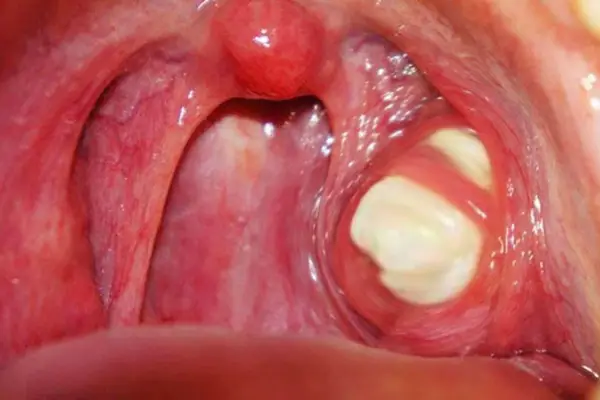As you place a hard lozenge in your mouth, you expect it to dissolve gradually as you lick it. But what happens if you accidentally swallow it whole? Generally, swallowing a cough drop tablet isn’t a significant cause for alarm. The primary concern would be if the lozenge were to enter the respiratory tract, posing a choking hazard. However, in most cases, it safely travels down the esophagus to the stomach.
Once in the stomach, the lozenge is subjected to the acidic environment and the churning motion of the stomach muscles. This process typically suffices to break down the cough drop into a form that can be easily digested. The stomach’s gastric juices play a crucial role in dissolving the lozenge, transforming it into a soluble state.
In the rare instance where a cough drop is too resilient to be dissolved by stomach acids, it continues its journey through the digestive system. The body’s natural processes ensure that such indigestible items are eventually passed through the gut and expelled from the body in a safe manner.
This phenomenon highlights the body’s remarkable ability to handle unexpected situations like the accidental swallowing of a cough drop, emphasizing the efficiency and resilience of the human digestive system.
Helpful Steps To Take If You Swallowed A Cough Drop Accidentally
If you accidentally swallow a cough drop, here are the steps you should follow:
1. Assess for Choking or Breathing Difficulty
If you can breathe normally and don’t feel the cough drop stuck in your throat, it’s likely that it has gone down the esophagus into your stomach. In this case, the risk is minimal, as your stomach can typically handle digesting the lozenge.
In a case where you’re experiencing difficulty breathing, coughing violently, or feel like the cough drop is stuck in your throat, it can be lifesaving to perform the Heimlich maneuver if you are trained to do so, or get someone nearby who is trained to assist.
2. Stay Calm and Drink Water
Panic can make the situation worse. So, stay as calm as possible.
Drink a glass of water, If you’re not choking and can swallow normally or feel something stuck in your throat. This can help ease any discomfort and assist in moving the cough drop along your digestive tract.
3. Monitor for Symptoms
Watch for Symptoms: After swallowing a cough drop, be on the lookout for any unusual symptoms such as stomach pain, nausea, or an allergic reaction. These symptoms are rare but should be monitored.
Seek Medical Advice if Necessary: If you feel unwell or experience persistent discomfort, consult a healthcare professional for advice.
4. Prevention for the Future
Be Mindful: In the future, be more mindful when using cough drops. Avoid talking or engaging in activities that might increase the risk of accidentally swallowing them.
5. Special Considerations
Children and Elderly: If a child or an elderly person swallows a cough drop, monitor them closely. Due to their smaller airways and potential for choking, it’s crucial to ensure they are breathing normally and not showing signs of distress.
What are Cough Drops?
Cough drops, also widely known as throat lozenges, are small, often sweetened tablets designed to dissolve slowly in the mouth. Their primary function is to soothe the throat, alleviate pain, and reduce coughing that often accompanies colds, allergies, or throat irritation. These lozenges work by stimulating saliva production, which helps keep the throat moist, and by providing a temporary numbing effect to alleviate discomfort.
The active ingredients in cough drops vary but typically include components like menthol, eucalyptus oil, and honey. Menthol, derived from mint oils, is widely used for its cooling and soothing effect, which can help ease throat irritation and suppress coughs. Eucalyptus oil serves a similar purpose, offering a cooling sensation and also acting as a mild expectorant, helping to break up mucus. Honey is favored for its soothing qualities and pleasant taste, and it can also provide mild relief for coughs due to its texture and consistency.
Besides these active ingredients, cough drops may contain various inactive ingredients like sweeteners, flavorings, and binders. These components help make the lozenges palatable and give them their structure. The flavorings also serve to make the experience of using a cough drop more pleasant, with a range of options available from classic menthol to fruity flavors.
Cough drops come in medicated and non-medicated forms. The medicated varieties contain active ingredients for symptom relief, while non-medicated ones primarily provide soothing effects through ingredients like honey or herbal extracts. The choice between these types often depends on the user’s specific needs and preferences.
It’s important to understand that while cough drops can provide temporary relief from throat irritation and coughing, they are not a cure for underlying conditions. They work by providing symptomatic relief, which means they can make you feel better in the short term but do not address the root cause of a cough or sore throat.
Potential Risks of Swallowing a Cough Drop Whole
The primary risk associated with swallowing a cough drop whole is choking. Due to their size and hard texture, cough drops can become lodged in the throat, especially if they are swallowed improperly.
If choking occurs, it’s critical to act swiftly. The Heimlich maneuver or seeking immediate medical attention can be lifesaving. For children and the elderly, the risk is higher, and extra care should be taken when they use cough drops.
Cough drops, while beneficial for soothing sore throats and coughs, contain ingredients that can have side effects, particularly when used excessively or in sensitive individuals. Key ingredients like menthol, eucalyptus oil, and benzocaine are common in many cough drops and each has its own set of potential side effects.
Menthol, a primary ingredient in many cough drops, is known for its cooling and soothing effect. However, in large amounts, it can cause side effects such as stomach upset, dizziness, and drowsiness. Prolonged use of menthol-containing cough drops can also lead to gastrointestinal issues like heartburn. Additionally, for people with sensitive airways, menthol can sometimes exacerbate breathing difficulties.
Eucalyptus oil, another common ingredient, is valued for its anti-inflammatory properties. Despite its benefits, eucalyptus oil can cause allergic reactions in some people, presenting symptoms like skin irritation or respiratory issues. It’s also important to be cautious with the use of eucalyptus oil in children and pregnant or breastfeeding women, as its safety in these groups is not well established.
Benzocaine, often found in medicated cough drops, is a local anesthetic that can help numb sore throat pain. While effective, benzocaine can cause side effects, particularly with overuse or misuse. These include allergic reactions, with symptoms ranging from skin rashes to more severe reactions like difficulty breathing. In rare cases, benzocaine can cause a condition called methemoglobinemia, where oxygen delivery to tissues is impaired, though this is more likely with higher doses or prolonged use.
In addition to these specific ingredient-related risks, other general concerns with cough drops include their sugar content, which can contribute to dental issues, and potential interactions with other medications. The risk of choking, particularly in children and the elderly, should also be considered.
Given these considerations, it’s advisable to use cough drops as directed and consult a healthcare provider if you have concerns, particularly if you have pre-existing health conditions, are taking other medications, or are pregnant or breastfeeding. Reading labels for specific ingredients and usage instructions is crucial to minimize potential risks associated with cough drops.
Alternatives Solutions
Consult a healthcare provider for appropriate cough syrups or medications that address the underlying cause of the cough.
Honey (for children over one year old), ginger, and lemon can be effective in soothing a sore throat and reducing cough symptoms.
Quitting smoking and avoiding irritants can significantly reduce cough symptoms and improve overall throat health.





